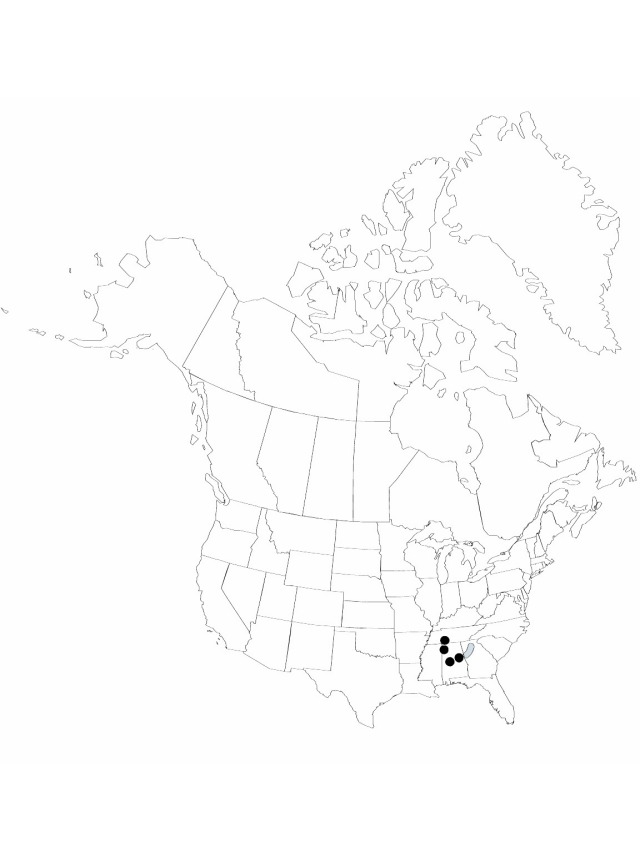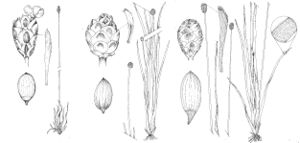Xyris tennesseensis
Rhodora 80: 444, figs. a–e. 1978.
Herbs, perennial, cespitose, 30–70 cm, base bulbous in maturity. Stems compact. Leaves ascending, 15–45 cm; sheaths soft, base pink or red; blade deep green, linear, flattened, somewhat twisted, 5–10 mm wide, smooth, margins somewhat scabrous. Inflorescences: scape sheaths exceeded by leaves; scapes linear, terete, distally somewhat compressed, 1 mm wide, 2–5-ribbed, ribs papillate; spikes ellipsoid to broadly ovoid, 10–15 mm; fertile bracts (5.5–)6–6.5(–7) mm wide, margins entire, apex rounded. Flowers: lateral sepals included, slightly curved, (4.5–)5 mm wide, keel scarious, lacerate; petals unfolding midday, blade obovate, 4.5 mm; staminodes bearded. Seeds opaque, ellipsoid, 0.5-0.6 mm, finely and irregularly ridged. 2n = 18.
Phenology: Flowering summer–fall.
Habitat: Fens and seeps over calcareous rock, streambanks in calcareous districts
Elevation: 0–250 m
Distribution

Ala., Ga., Tenn.
Discussion
Xyris tennesseensis is unusual in habitat since because its sites are usually basic and its associates are fen or basic soil plants.
Of conservation concern.
Selected References
None.
